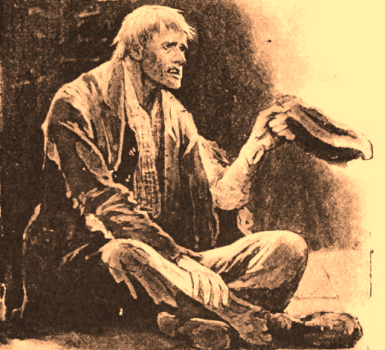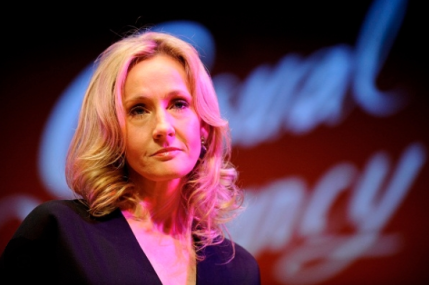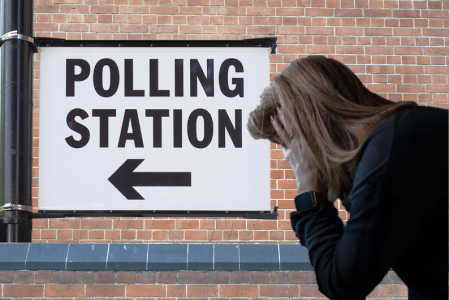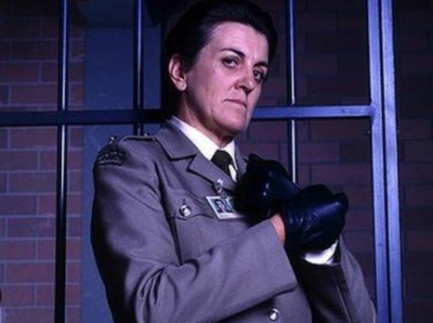 Choosing a title for a post on here and occasionally coming up with an old-school Fleet Street pun of a one can often take more time than penning the post itself. As with selecting an accompanying image I feel best illustrates the piece (or will provoke a titter), getting it right sometimes means a longer delay between writing and posting than I’d care for. It’s not always the case, of course – a title and image that fit can just as easily appear before me as soon as I’m writing the first paragraph; but another factor I now have to contend with is the possibility I’ve used the same title before. Due to the fact the Winegum has been in existence for eight and-a-half years, there are over a thousand posts on here and the odds of me coming up with the same title every once in a while are quite strong. It shouldn’t really matter, and I’m pretty sure few if any readers see a new post and think, ‘Hold on a minute – he’s used that before’; but I confess it does annoy me if I stumble upon an old post and there it is again. Anyway, I digress (what’s new?); the fact is I was convinced the title of the previous post, ‘Living on Borrowed Time’, was too obvious not to have been recycled, but I went for it anyway because it fitted. And it proved to be perfect, even if I didn’t realise the borrowed time upon which Humza Yousaf was living would expire within 48 hours.
Choosing a title for a post on here and occasionally coming up with an old-school Fleet Street pun of a one can often take more time than penning the post itself. As with selecting an accompanying image I feel best illustrates the piece (or will provoke a titter), getting it right sometimes means a longer delay between writing and posting than I’d care for. It’s not always the case, of course – a title and image that fit can just as easily appear before me as soon as I’m writing the first paragraph; but another factor I now have to contend with is the possibility I’ve used the same title before. Due to the fact the Winegum has been in existence for eight and-a-half years, there are over a thousand posts on here and the odds of me coming up with the same title every once in a while are quite strong. It shouldn’t really matter, and I’m pretty sure few if any readers see a new post and think, ‘Hold on a minute – he’s used that before’; but I confess it does annoy me if I stumble upon an old post and there it is again. Anyway, I digress (what’s new?); the fact is I was convinced the title of the previous post, ‘Living on Borrowed Time’, was too obvious not to have been recycled, but I went for it anyway because it fitted. And it proved to be perfect, even if I didn’t realise the borrowed time upon which Humza Yousaf was living would expire within 48 hours.
The self-pitying crocodile tears that fooled no one when summoned-up by Mrs T and Theresa May as they fell on their own respective swords were in evidence once more when the Scottish First Minister – nicknamed ‘Humza the Brief’ by Andrew Neil – announced his resignation yesterday. Walking the plank before having to endure an expected and humiliating defeat in a no-confidence vote this week, Nicola Sturgeon’s doomed successor enjoyed a mercifully short time in office, serving just thirteen months as Scotland’s unelected dictator. For a man with such a piss-poor record as an SNP Minister – first in Transport and then Health – it’s hard not to wonder how it was he managed to get the gig in the first place; one hesitates to suggest he achieved his goal simply because he ticked all the right boxes that a ‘Progressive’ Party like the SNP prize so highly, but he evidently didn’t get there on the basis of competence or capability. This pompous, humourless, arrogant and egotistical individual has shown the Scottish people the grim reality of what happens when Identitarian zealots grab the reins of power; we’ve already seen what a disaster this has proven to be in Canada and Ireland, but the blink-and-you’ll-miss-it reign of Humza the Brief has provided the UK with a nightmarish vision of the kind of leader that awaits the rest of the nation if the dogma that has captured the country’s corporations and institutions is allowed to seize the throne.
A country run by a man who hates the country and its people is not a country in a fit and healthy state, and Humza Yousaf gave every impression from the off that he was ashamed of his nation and its history. Like Brian Clough arriving at Leeds United and hardly endearing himself to the players by telling them to throw their medals in the bin because they hadn’t earned any of them fairly, Humza Yousaf didn’t even bother to disguise his contempt for the Scottish people, exhibiting all the worst traits of the privileged metropolitan snob; tapping in to the cult of victimhood crucial to the Woke mindset, he also rarely wasted an opportunity to wear his oppressed minority credentials by denouncing Scotland’s ‘whiteness’; would he, one wonders, have visited Nigeria and denounced its ‘blackness’? It’s a curious way to introduce yourself to the people you’re supposed to be leading, to play the race card to 96% of the population and say it’s because of them that a Trans Muslim of Colour with Mental Health Issues isn’t managing the Scotland national team. Beyond the SNP inner circle, I should imagine there won’t be a moist eye in any house north of Berwick following Yousaf’s exit – unlike his own tearful resignation performance. Mind you, had Humza the Brief had his way, he could’ve received reports on the private conversations taking place in those houses and dispatched McKnacker to the door should he perceive them as potential ‘Hate Crimes’.
We seem to reside in an age in which those utterly incapable of doing the top political jobs somehow end up with them; Corbyn, Biden, Boris, and Liz Truss spring to mind, but perhaps Humza the Brief is the best/worst example of this depressing trend. The only saving grace to it is that it doesn’t take long before their incompetence is exposed, and Scotland’s outgoing First Minister was gifted with a talent akin to (as The Hollies once memorably put it) King Midas in reverse. From being caught driving without insurance when Transport Minister to calling a striking nurse struggling on a pittance ‘patronising’ when Health Minister to the infamous incident when he publicly accused a nursery of ‘Islamophobia’ because they wouldn’t accept his infant daughter – how dare they? – Humza Yousaf already had a track record of gaffes and bungles that made it blatantly clear he wasn’t cut out for high office, not to mention numerous examples of his vain, entitled hubris that that revealed what a complete c**t he was. However, as Wee Ms Krankie’s anointed heir, Yousaf was earmarked for the post he duly proceeded to spend a year blundering his way through, and ending the power-sharing agreement with the Scottish Greens that precipitated his swift downfall was a characteristic misfire destined to end in tears.
According to reports, the decision to curtail the Bute House Agreement was greeted with cheers by many SNP members who had grown weary of a Party that had tested even the SNP’s twisted ideological agenda. The Scottish Greens are England’s Green Party turned up to eleven; the SNP entering into a coalition with them was like a governing Labour Party entering into a coalition with Just Stop Oil or Extinction Rebellion in England; they’re that extreme when it comes to living their lives by the diktats of St Greta. Giving a collection of middle-class eco-fear mongers a slice of power was disastrous for the Scottish people – not to mention the SNP’s poll ratings – so one can understand the desire of Humza Yousaf to bring the arrangement to an end; the problem with this decision was that Yousaf had not exactly endeared himself to anyone outside of his Holyrood court, and the fact the SNP had depended upon Green support to ensure their own survival in government meant the end of the coalition left both the First Minister and his Party in a perilous position. It goes without saying Yousaf will be replaced via another internal election in which the Scottish electorate have no say; but the Scottish electorate, as with the UK as a whole, deserve better.
READER’S DIGEST (1938-2024)
 Magazines – remember them? I used to buy quite a few at one time, everything from music mainstays like Uncut and Mojo to Vogue (which I liked because of ‘the articles’, obviously); then, with the exception of Private Eye and the Radio Times, I just stopped buying them at some point around a decade or so ago. It didn’t help that they were becoming increasingly expensive, but I guess, like a lot of people, I found the information contained within their pricey pages was easier (and cheaper) to access online. Long after one ceases to fork out for such items, it’s strangely comforting to realise they still exist; therefore, when one abruptly folds, one is overcome with a sudden rush of nostalgia. The news that the UK edition of Reader’s Digest is to end after 86 years comes as something of a shock in that I didn’t realise this one-time fixture of the waiting rooms in GP’s surgeries (not to mention my grandparents’ shelves) was still being published. Collecting articles from periodicals around the world and reproducing them in a convenient, bite-size compilation, Reader’s Digest hit on a winning formula that made it a familiar sight in households that harboured modest intellectual aspirations back in the 50s, 60s and 70s; along with National Geographic, it was a handy window into a world its readers weren’t prepared to invest in any further than a mere monthly sample at an affordable price. As relatively recently as 2000, Reader’s Digest could still sell over a million copies in the UK a month, but that world, along with Reader’s Digest itself, is now evidently gone.
Magazines – remember them? I used to buy quite a few at one time, everything from music mainstays like Uncut and Mojo to Vogue (which I liked because of ‘the articles’, obviously); then, with the exception of Private Eye and the Radio Times, I just stopped buying them at some point around a decade or so ago. It didn’t help that they were becoming increasingly expensive, but I guess, like a lot of people, I found the information contained within their pricey pages was easier (and cheaper) to access online. Long after one ceases to fork out for such items, it’s strangely comforting to realise they still exist; therefore, when one abruptly folds, one is overcome with a sudden rush of nostalgia. The news that the UK edition of Reader’s Digest is to end after 86 years comes as something of a shock in that I didn’t realise this one-time fixture of the waiting rooms in GP’s surgeries (not to mention my grandparents’ shelves) was still being published. Collecting articles from periodicals around the world and reproducing them in a convenient, bite-size compilation, Reader’s Digest hit on a winning formula that made it a familiar sight in households that harboured modest intellectual aspirations back in the 50s, 60s and 70s; along with National Geographic, it was a handy window into a world its readers weren’t prepared to invest in any further than a mere monthly sample at an affordable price. As relatively recently as 2000, Reader’s Digest could still sell over a million copies in the UK a month, but that world, along with Reader’s Digest itself, is now evidently gone.
© The Editor
Website: https://www.johnnymonroe.co.uk/
Patreon: https://www.patreon.com/user?fan_landing=true&u=56665294

 Elected on the strength of a promise yet to be delivered, the SNP has always relied upon its raison d’être as a form of insurance that will guarantee it the enduring support of Scots who dream of breaking away from the UK. This enticing carrot dangled before the Scottish electorate means the Party has been routinely free to exert its inherent authoritarianism, to push ahead with increasingly illiberal proposals and legislation, safe and secure in the knowledge that the pro-independence brigade will always forgive it like a parent always forgives a wayward child who happens to be the favourite. The Gender Recognition Reform Bill, the Hate Crime and Public Order Act, the notion of the State appointing a ‘named person’ to effectively raise (indoctrinate?) children instead of their parents – it’s hard to imagine these and a raft of other insane ideas gaining any sort of traction had they not been proposed by a Party that knows it can get away with it. Well, maybe the SNP has been guilty of a little complacency when it comes to this bedrock of support, convinced its most devoted followers will turn a blind eye to what they don’t like because the Party has always promised to fight for the one thing they do.
Elected on the strength of a promise yet to be delivered, the SNP has always relied upon its raison d’être as a form of insurance that will guarantee it the enduring support of Scots who dream of breaking away from the UK. This enticing carrot dangled before the Scottish electorate means the Party has been routinely free to exert its inherent authoritarianism, to push ahead with increasingly illiberal proposals and legislation, safe and secure in the knowledge that the pro-independence brigade will always forgive it like a parent always forgives a wayward child who happens to be the favourite. The Gender Recognition Reform Bill, the Hate Crime and Public Order Act, the notion of the State appointing a ‘named person’ to effectively raise (indoctrinate?) children instead of their parents – it’s hard to imagine these and a raft of other insane ideas gaining any sort of traction had they not been proposed by a Party that knows it can get away with it. Well, maybe the SNP has been guilty of a little complacency when it comes to this bedrock of support, convinced its most devoted followers will turn a blind eye to what they don’t like because the Party has always promised to fight for the one thing they do. Despite the opportunistic rebranding of tat as ‘vintage’, charity shops still occasionally unearth little gems that sneak under the eBay radar and are picked-up by grateful punters bereft of an ulterior motive; a couple of weeks ago, I stumbled upon an entry in the long-running and collectable ‘Observer’s Book of…’ series, a 1980 reprint of 1973’s ‘London’, complete with a suitably avuncular Yeoman Gaoler on the cover. These nifty little pocket book guides were published on a variety of subjects between 1937 and 1982, with a one-off revival as recent as 2003; this particular copy cost me a quid. It reminded me that, even now, it remains possible to locate such items for next-to-nothing, regardless of the change in approach that came via the negative impact of Mary Portas and her reality TV assault on the charity shop ethos around 15 years ago. When I first began to frequent high-street bargain-bins in the 80s, it seemed everything on sale was a giveaway because nobody really wanted anything in there (bar amateur antiquarians such as myself), and one fascinating fossil I found back then cost me 70p, an item that had originally retailed at 6/- when published in 1963. It was the BBC Handbook 1964, looking ahead to an especially eventful year as the Corporation prepared to launch its second television channel.
Despite the opportunistic rebranding of tat as ‘vintage’, charity shops still occasionally unearth little gems that sneak under the eBay radar and are picked-up by grateful punters bereft of an ulterior motive; a couple of weeks ago, I stumbled upon an entry in the long-running and collectable ‘Observer’s Book of…’ series, a 1980 reprint of 1973’s ‘London’, complete with a suitably avuncular Yeoman Gaoler on the cover. These nifty little pocket book guides were published on a variety of subjects between 1937 and 1982, with a one-off revival as recent as 2003; this particular copy cost me a quid. It reminded me that, even now, it remains possible to locate such items for next-to-nothing, regardless of the change in approach that came via the negative impact of Mary Portas and her reality TV assault on the charity shop ethos around 15 years ago. When I first began to frequent high-street bargain-bins in the 80s, it seemed everything on sale was a giveaway because nobody really wanted anything in there (bar amateur antiquarians such as myself), and one fascinating fossil I found back then cost me 70p, an item that had originally retailed at 6/- when published in 1963. It was the BBC Handbook 1964, looking ahead to an especially eventful year as the Corporation prepared to launch its second television channel. ‘The League of Gentlemen’, that superb 1960 British caper movie with a delicious dollop of black comedy, highlighted the irony of how particular talents that are valued in wartime are rendered redundant once peace comes around. The bitter ex-Army officer character played by Jack Hawkins, given his cards by his superiors due to there being precious little for him to do anymore, attempts to get his own back on the establishment that abandoned him by assembling a motley crew of former war heroes whose post-war careers on Civvy Street have seen them drift aimlessly on the seedy fringes of society, gifted with skills that peacetime has no outlet for. He surmises the only outlet left for those skills is to use them for criminal means via an audacious bank raid; and all goes well up until the inevitable climax when the team is naturally foiled by the boys in blue. The film tapped into a dead-end that confronted the demobbed when returning to ‘normal life’, though this wasn’t a sensation unique to the aftermath of WWII. A rarely-mentioned side-effect of the end of the Napoleonic Wars brought about by the victory of Waterloo in 1815 was the decommissioning of His Majesty’s Forces, men who suddenly had nowhere to go once their country no longer needed them to do their duty. After 20 years of battling post-Revolutionary France, a battle that necessitated a constant supply of cannon-fodder, Britain received an influx of bewildered and often mutilated men for whom there was no safety net in place.
‘The League of Gentlemen’, that superb 1960 British caper movie with a delicious dollop of black comedy, highlighted the irony of how particular talents that are valued in wartime are rendered redundant once peace comes around. The bitter ex-Army officer character played by Jack Hawkins, given his cards by his superiors due to there being precious little for him to do anymore, attempts to get his own back on the establishment that abandoned him by assembling a motley crew of former war heroes whose post-war careers on Civvy Street have seen them drift aimlessly on the seedy fringes of society, gifted with skills that peacetime has no outlet for. He surmises the only outlet left for those skills is to use them for criminal means via an audacious bank raid; and all goes well up until the inevitable climax when the team is naturally foiled by the boys in blue. The film tapped into a dead-end that confronted the demobbed when returning to ‘normal life’, though this wasn’t a sensation unique to the aftermath of WWII. A rarely-mentioned side-effect of the end of the Napoleonic Wars brought about by the victory of Waterloo in 1815 was the decommissioning of His Majesty’s Forces, men who suddenly had nowhere to go once their country no longer needed them to do their duty. After 20 years of battling post-Revolutionary France, a battle that necessitated a constant supply of cannon-fodder, Britain received an influx of bewildered and often mutilated men for whom there was no safety net in place. If the current trend for everyone who ever lived before us being judged on the social and moral mores of our times rather than their own continues, one wonders how the present day will fare in the future’s cultural courtroom. How many individuals and attitudes will be found not guilty and how many will be condemned to eternal damnation without the hope of redemption? I’ve long suspected some of these individuals and attitudes will eventually be cast in the same negative light as those they themselves retrospectively demonise, yet for the vast majority of folk – who don’t control the means of mass communication or run corporations and institutions – the insanity of this ascendancy to positions of power and influence was both baffling and concerning from the off. Most of us already knew this wasn’t a good idea, but the sheer weight of propaganda relentlessly streaming from the platforms the masses depend upon – along with the vicious attack dogs those platforms can summon – has marginalised and suppressed dissenting voices and encouraged self-censorship. But were one to look into the crystal ball, it’s evident that today’s indulged ideologues are tomorrow’s slave-traders or eugenics advocates; today’s dogmatic mantras are tomorrow’s discredited belief systems.
If the current trend for everyone who ever lived before us being judged on the social and moral mores of our times rather than their own continues, one wonders how the present day will fare in the future’s cultural courtroom. How many individuals and attitudes will be found not guilty and how many will be condemned to eternal damnation without the hope of redemption? I’ve long suspected some of these individuals and attitudes will eventually be cast in the same negative light as those they themselves retrospectively demonise, yet for the vast majority of folk – who don’t control the means of mass communication or run corporations and institutions – the insanity of this ascendancy to positions of power and influence was both baffling and concerning from the off. Most of us already knew this wasn’t a good idea, but the sheer weight of propaganda relentlessly streaming from the platforms the masses depend upon – along with the vicious attack dogs those platforms can summon – has marginalised and suppressed dissenting voices and encouraged self-censorship. But were one to look into the crystal ball, it’s evident that today’s indulged ideologues are tomorrow’s slave-traders or eugenics advocates; today’s dogmatic mantras are tomorrow’s discredited belief systems. Whichever way one looks at it, the past fortnight has not been great when it comes to highlighting the ‘moral fibre’ of our elected representatives. Across the Irish Sea in that outpost of Albion known as Ulster, DUP leader Sir Jeffrey Donaldson has been forced to resign after being charged with rape and other ‘historical sex offences’, despite the fact the latter charge always sounds like something that should be levelled at a dead Viking. On the mainland, Labour’s deputy leader Angela Rayner has been caught in Fleet Street’s headlights due to a property she sold back in 2015; accused of not paying the correct amount of capital gains tax on the house during the sale, the question of breaking the law or submitting false information depends upon whether or not the house was her principal residence at the time; most of us have to settle for just the one, but there you go. Anyway, this old news was primarily stirred-up by former Conservative Party chairman Lord Ashcroft, who incidentally avoided paying £112m in UK tax from 2000 to 2010 on account of his non-dom status. The theory previously aired by our old friend Mudplugger that most Labour scandals stem from financial affairs whilst most Tory ones tend to concern ‘Ugandan discussions’ appears to ring true with regards to the current woes of Conservative MP and vice-chairman of the 1922 Committee, William Wragg.
Whichever way one looks at it, the past fortnight has not been great when it comes to highlighting the ‘moral fibre’ of our elected representatives. Across the Irish Sea in that outpost of Albion known as Ulster, DUP leader Sir Jeffrey Donaldson has been forced to resign after being charged with rape and other ‘historical sex offences’, despite the fact the latter charge always sounds like something that should be levelled at a dead Viking. On the mainland, Labour’s deputy leader Angela Rayner has been caught in Fleet Street’s headlights due to a property she sold back in 2015; accused of not paying the correct amount of capital gains tax on the house during the sale, the question of breaking the law or submitting false information depends upon whether or not the house was her principal residence at the time; most of us have to settle for just the one, but there you go. Anyway, this old news was primarily stirred-up by former Conservative Party chairman Lord Ashcroft, who incidentally avoided paying £112m in UK tax from 2000 to 2010 on account of his non-dom status. The theory previously aired by our old friend Mudplugger that most Labour scandals stem from financial affairs whilst most Tory ones tend to concern ‘Ugandan discussions’ appears to ring true with regards to the current woes of Conservative MP and vice-chairman of the 1922 Committee, William Wragg. During his star turn as the waspish comic relief to Cliff Michelmore’s straight man in the BBC’s 1970 General Election coverage, Robin Day’s relish at the pollsters having got the result so wrong was impossible for him to contain; at one point he confronted a professional pollster who had supplied what proved to be inaccurate pre-Election forecasts for the Evening Standard and Sunday Times; rounding on the hapless pollster, Day asked ‘Does it matter to you that the people in their wisdom seem to have treated the polls with contempt?’ Whereas professional pollsters relied on tried-and-trusted methods, the 1970 Election was the first time the BBC had attempted asking voters how they voted as they exited the polling station, rather than the usual formula of asking voters how they were going to vote beforehand. Although the phrase ‘Quiet Tories’ hadn’t been coined back then, there were few indications via the old way that so many would choose the Conservatives over Labour, suggesting plenty of those surveyed were reluctant to reveal the truth prior to putting a cross next to their chosen candidate’s name. The Beeb canvassed the electorate of Gravesend on account of it being named the most ordinary constituency in the country, claiming ‘if you know how Gravesend votes, you know how the nation votes’; as it turned out, they were right – and Gravesend swung to the Right, as did the rest of the UK, something the opinion polls failed to predict.
During his star turn as the waspish comic relief to Cliff Michelmore’s straight man in the BBC’s 1970 General Election coverage, Robin Day’s relish at the pollsters having got the result so wrong was impossible for him to contain; at one point he confronted a professional pollster who had supplied what proved to be inaccurate pre-Election forecasts for the Evening Standard and Sunday Times; rounding on the hapless pollster, Day asked ‘Does it matter to you that the people in their wisdom seem to have treated the polls with contempt?’ Whereas professional pollsters relied on tried-and-trusted methods, the 1970 Election was the first time the BBC had attempted asking voters how they voted as they exited the polling station, rather than the usual formula of asking voters how they were going to vote beforehand. Although the phrase ‘Quiet Tories’ hadn’t been coined back then, there were few indications via the old way that so many would choose the Conservatives over Labour, suggesting plenty of those surveyed were reluctant to reveal the truth prior to putting a cross next to their chosen candidate’s name. The Beeb canvassed the electorate of Gravesend on account of it being named the most ordinary constituency in the country, claiming ‘if you know how Gravesend votes, you know how the nation votes’; as it turned out, they were right – and Gravesend swung to the Right, as did the rest of the UK, something the opinion polls failed to predict. Without wishing this here blog to become a listings guide for Talking Pictures TV – though I admit it’s a tempting alternative to commenting on relentlessly grim contemporary headlines – I’m moved to mention a movie which comfortably slots into the station’s schedules, so much so that it appears to air every few weeks on there. ‘Hell Drivers’ is a gritty B&W British thriller of the late 50s, a low-budget look at the corrupt, corner-cutting haulage industry and the shady figures that profit from it. The film boasts a breath-taking cast of the best character actors this country could offer at the time, including Stanley Baker, Patrick McGoohan, Herbert Lom, William Hartnell, Gordon Jackson, Alfie Bass, Sid James, David McCallum, and even a pre-Bond Sean Connery. The motley crew of drivers employed by the company are incentivised to deliver their goods a minimum of twelve times a day; anyone failing to keep up with the demand is handed their cards whilst anyone exceeding the minimum amount of daily deliveries is favoured by management. Forced into competition with each other, the drivers take their lives in their hands by hurtling along narrow and bumpy country lanes on a 20 mile round-trip at increasingly reckless speeds. As seemingly irrelevant as ‘Hell Drivers’ is to our glorious modern age, its regular presence on TPTV is actually quite prescient with regards to an ongoing spat between elected and electorate that is well and truly under the radar of all but those who stand to be directly affected by it.
Without wishing this here blog to become a listings guide for Talking Pictures TV – though I admit it’s a tempting alternative to commenting on relentlessly grim contemporary headlines – I’m moved to mention a movie which comfortably slots into the station’s schedules, so much so that it appears to air every few weeks on there. ‘Hell Drivers’ is a gritty B&W British thriller of the late 50s, a low-budget look at the corrupt, corner-cutting haulage industry and the shady figures that profit from it. The film boasts a breath-taking cast of the best character actors this country could offer at the time, including Stanley Baker, Patrick McGoohan, Herbert Lom, William Hartnell, Gordon Jackson, Alfie Bass, Sid James, David McCallum, and even a pre-Bond Sean Connery. The motley crew of drivers employed by the company are incentivised to deliver their goods a minimum of twelve times a day; anyone failing to keep up with the demand is handed their cards whilst anyone exceeding the minimum amount of daily deliveries is favoured by management. Forced into competition with each other, the drivers take their lives in their hands by hurtling along narrow and bumpy country lanes on a 20 mile round-trip at increasingly reckless speeds. As seemingly irrelevant as ‘Hell Drivers’ is to our glorious modern age, its regular presence on TPTV is actually quite prescient with regards to an ongoing spat between elected and electorate that is well and truly under the radar of all but those who stand to be directly affected by it.